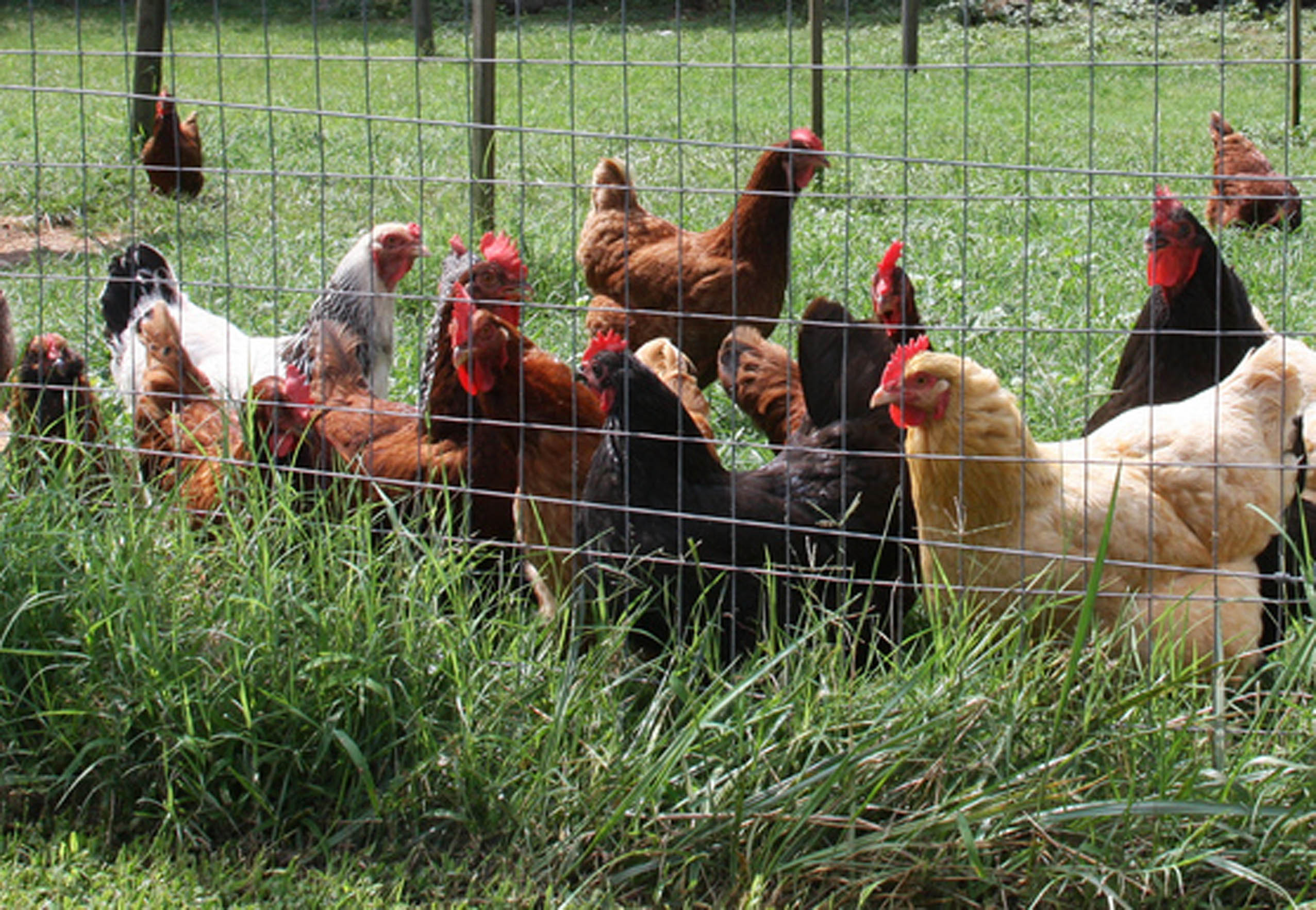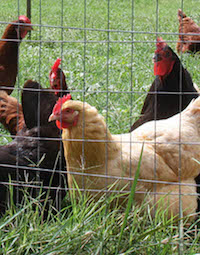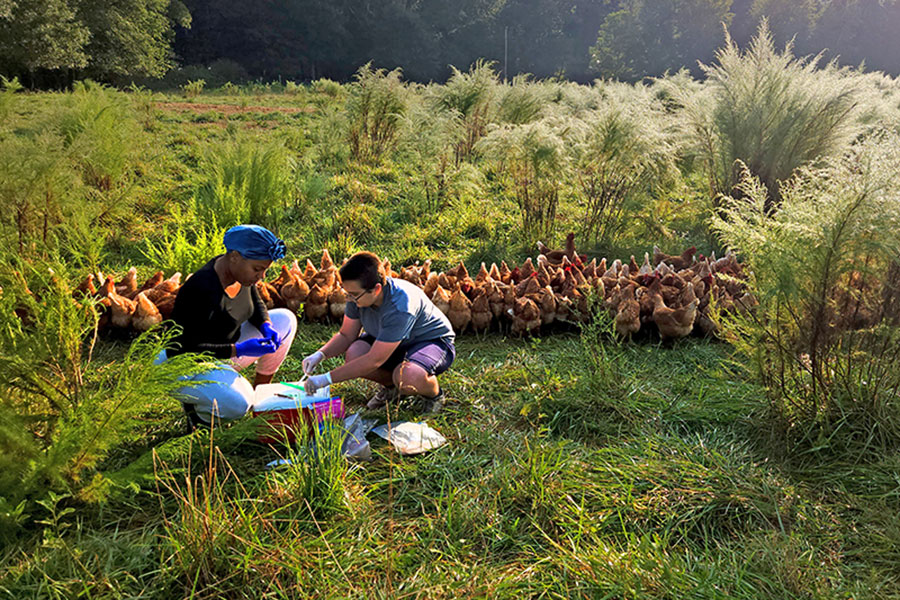Avian influenza was detected on March 3, 2017, in a commercial chicken flock in Lincoln County, Tennessee, less than 100 miles from the Georgia state line.
Tests revealed the presence of highly pathogenic H7 avian influenza (HPAI). The farm was quarantined and the birds were depopulated.
Avian influenza has not been found in Georgia yet, but officials with the Georgia Department of Agriculture urge chicken producers, especially backyard flock owners, to remain vigilant and follow established safeguards to protect birds and their owners.
The version of H7 HPAI detected in Tennessee can be traced to North American wild birds. The infected flock of 73,500 chickens is located within the Mississippi flyway, a path that migratory birds follow on their annual journey south in search of warmer climates. Georgia is located within the Atlantic flyway.
While the commercial poultry industry in Georgia runs the greatest risk in terms of potential for loss, producers have multiple safeguards in place and there is limited exposure to migratory birds. Avian flu can more easily be introduced into Georgia through backyard chicken flocks.
To protect backyard chickens, University of Georgia Cooperative Extension offers small-flock owners these tips to keep themselves, and their chickens, safe from HPAI.
Keep Your Distance
- Restrict access to your property and your birds.
- Consider placing the birds inside a fence, and only allow those who care for the birds to come in contact with them.
- If visitors have backyard chickens of their own, do not let them come in contact with your birds.
- Game birds and migratory waterfowl should not have contact with your flock.
- Keep chickens inside a pen or coop. Do not let them run free.
Keep Clean
- Wear clean clothes when coming in contact with your birds. Scrub your shoes with disinfectant.
- Wash your hands thoroughly before entering the chicken pen.
- Clean cages and change food daily.
- Keep stored feed in enclosed containers and protected from wild birds and vermin.
- Clean and disinfect equipment that comes in contact with your birds or their droppings, including cages and tools.
- Remove manure before disinfecting.
- Properly dispose of dead birds.
- Use municipal water as a drinking source instead of giving chickens access to ponds or streams. (The avian influenza virus can live for long periods of time on surface waters.)
Don’t Bring Disease Home
- If you have been near other birds or bird owners, at a feed store or bird hunting, for instance, clean and disinfect your vehicle’s tires and your equipment before going home. Shower and put on clean clothing before approaching your flock.
- Keep any new birds or birds that have been off-site separate from your flock for at least 30 days.
- Do not share tools, equipment or supplies with other bird owners.
- If you do bring borrowed items home, clean and disinfect them before you bring them home.
Know the Signs of a Sick Bird
A sudden increase in deaths can be a clear sign of the virus, as well as:
- A drop in egg production, or eggs that are soft, thin-shelled or misshapen
- Lack of energy or poor appetite
- Watery and green diarrhea
- Purple discoloration of the wattles, combs and legs
- Swelling around the eyes
- Nasal discharge
Early detection is critical to preventing the spread of avian influenza. If you suspect your flock is infected, call the Georgia Poultry Laboratory Network at 770-766-6810. For more information on avian influenza, call the Georgia Department of Agriculture at 404-656-3667. To learn more about how to care for backyard flocks, see the UGA Extension publications on the topic at extension.uga.edu/publications.








